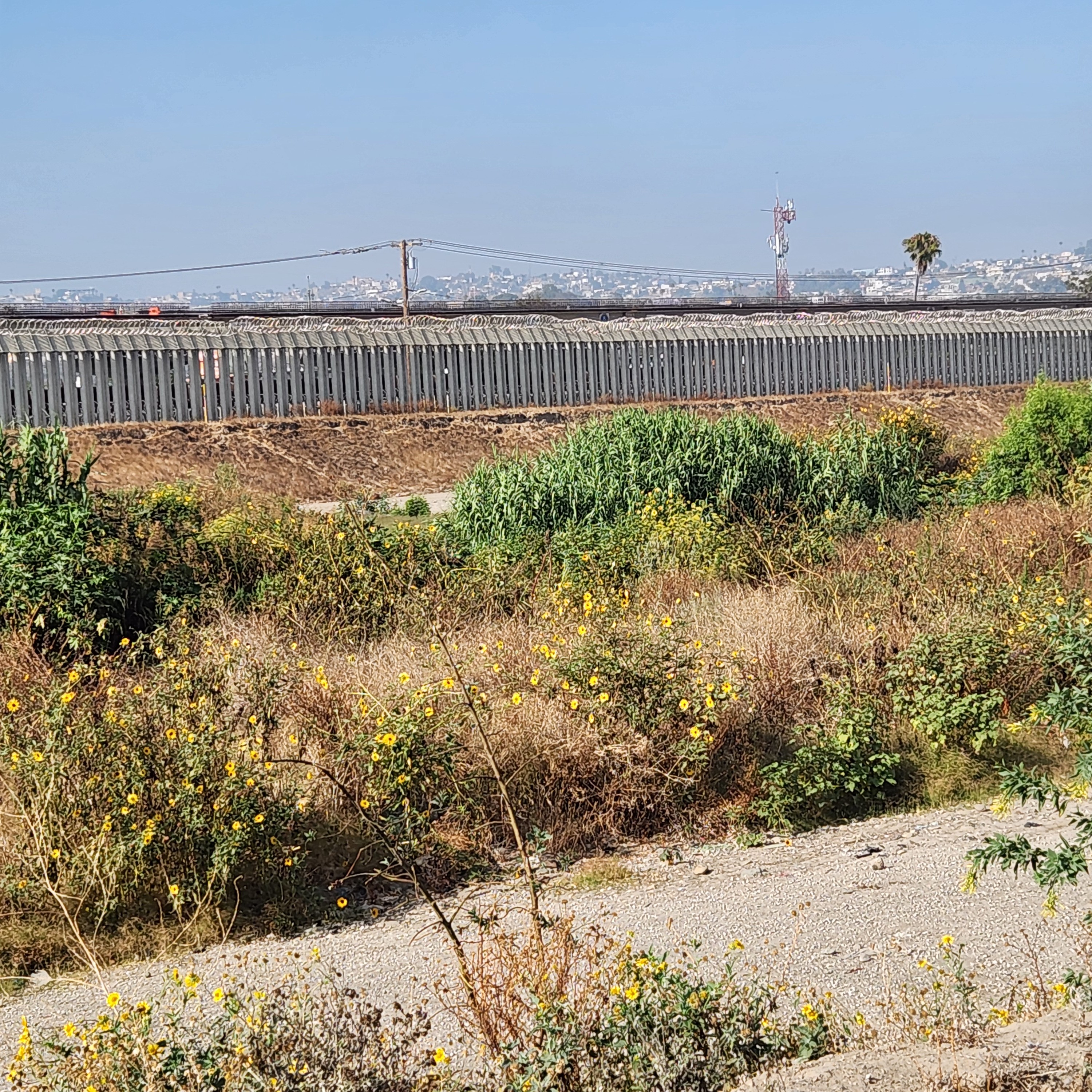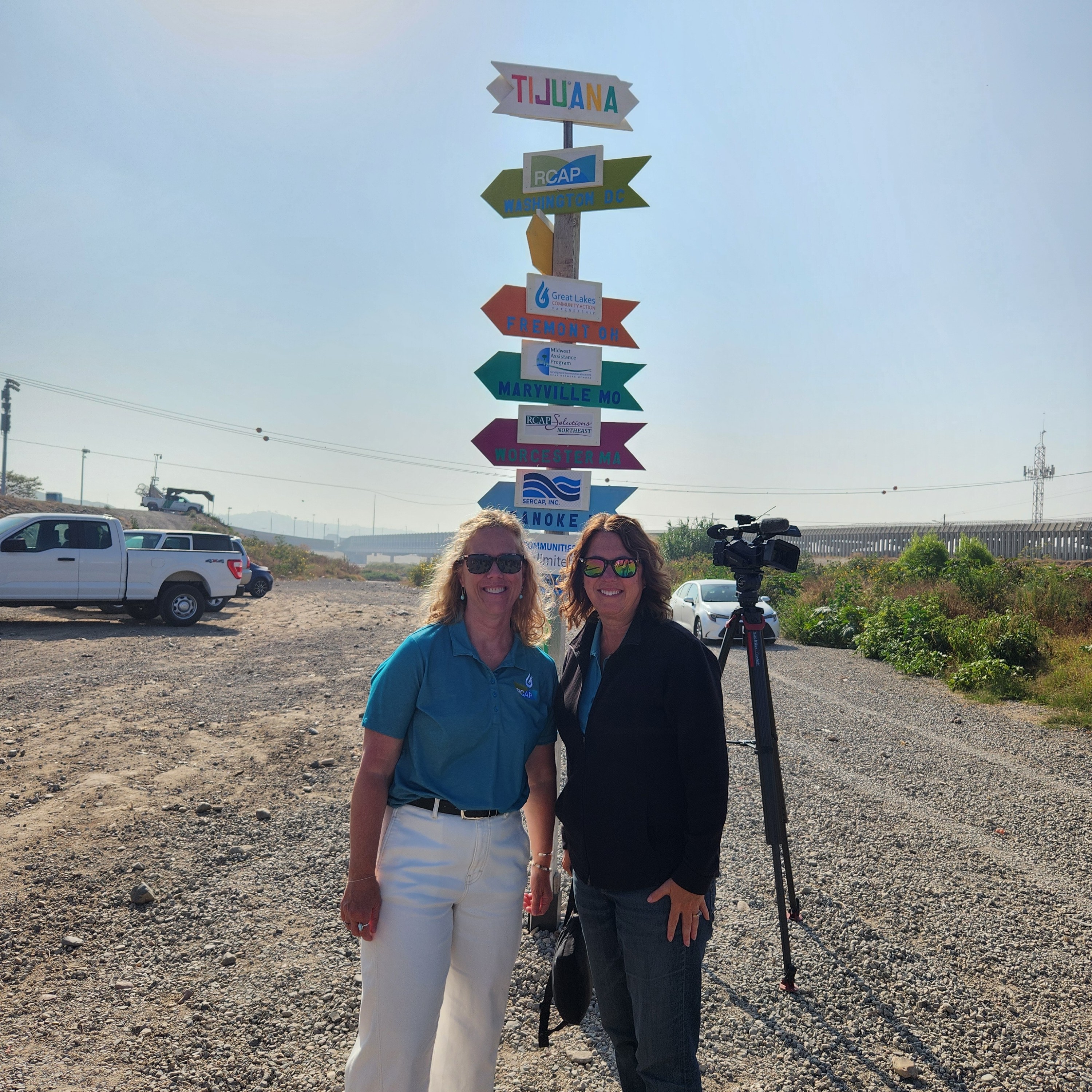RCAP and GLCAP Witness Impact of Trash Boom in Tijuana River
Earlier this month, representatives from RCAP and its regional partners, including the Great Lakes Community Action Partnership (GLCAP), traveled to San Diego and the Tijuana River to observe the impressive results of a newly installed trash boom, a project partially funded by RCAP.
Representing GLCAP were Kristin Woodall, Community Development Director and Great Lakes RCAP Program Manager (Ohio), and Kimberly Padgett, Great Lakes RCAP States Operations Coordinator (Kentucky).
A trash boom is a floating barrier designed to contain debris in waterways such as rivers and canals. Anchored to the shoreline and riverbed, these structures use flotation devices and submerged curtains to trap floating trash before it can reach larger bodies of water like oceans or lakes.
The installation of the Tijuana River trash boom marks the culmination of nearly two decades of collaborative effort led by nonprofit organizations Alter Terra and RCAP. The city of Tijuana faces significant challenges with illegal dumping, where waste washes down canyons and into the river, eventually crossing the border into California.
This innovative barrier was installed to stem the flow of debris into the United States, and its impact has been remarkable. In just one year, the trash boom has prevented over 500 tons of plastic, garbage, and other debris from entering the Tijuana River Valley and the Pacific Ocean, far surpassing expectations.
This success highlights the power of cross-border collaboration and community-driven environmental solutions. RCAP and GLCAP remain committed to supporting initiatives that protect waterways and improve quality of life for communities on both sides of the border.


